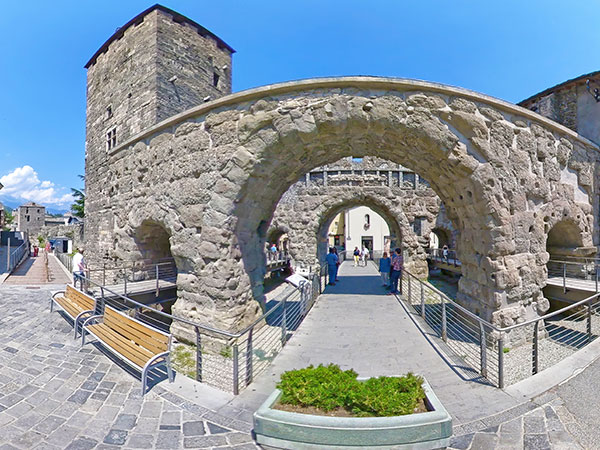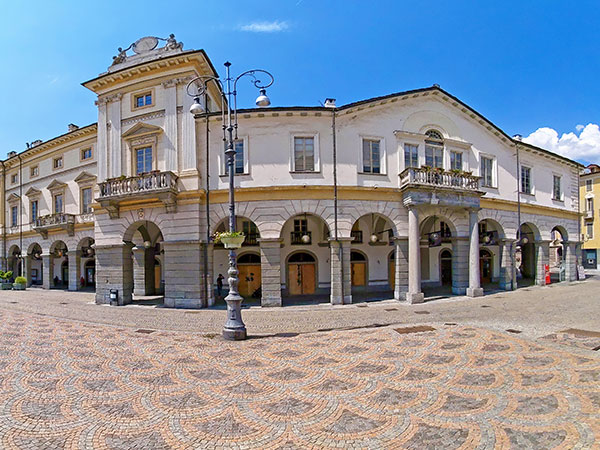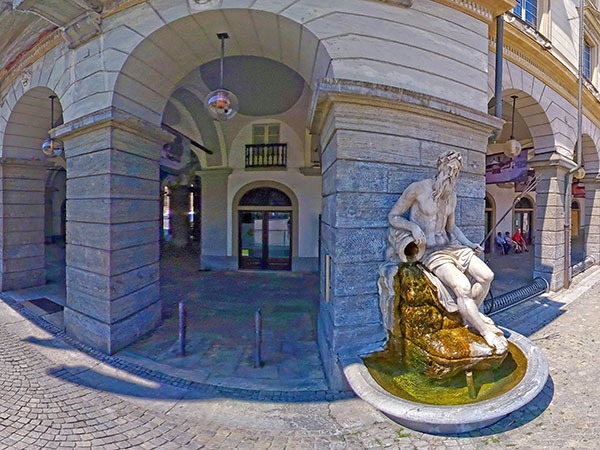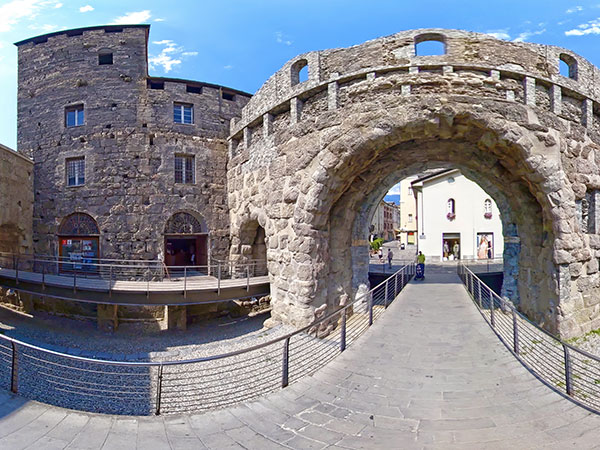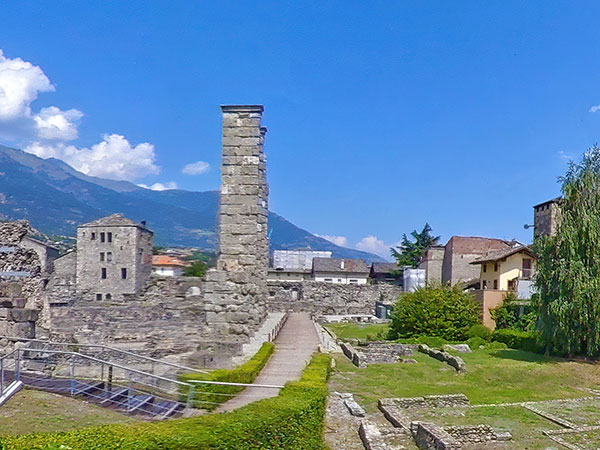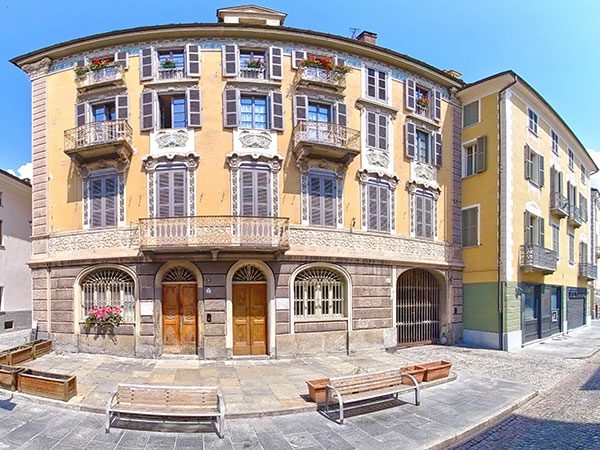The capital of Valle d'Aosta, a bilingual (French-Italian) region in northern Italy, on the southern side of the Alps. An important crossroads between north and south: to the northwest the Mont Blanc tunnel leads to France, to the north the Great St Bernard pass and tunnel lead to Switzerland.
With almost 35,000 inhabitants, it is the largest town in the valley, inextricably blending the eras. According to legend, it was founded in 1158 BC by the Salasses, a people of megalithic culture of Celto-Ligurian origin, who named it Cordelia.
The Romans established the colony of Augusta Praetoria Salassorum in 25 BC and built a theatre, an amphitheatre, baths, a triumphal arch and a forum. The Roman ruins of the city walls and gates are still visible today.
Over the centuries, the Roman name Augusta became Aosta. The Val d'Aoste adopted French as its official language in 1536... three years before France itself!
Since becoming part of Italy, the Aosta Valley has not ceased to fight against the attacks on its culture, especially during the Fascist period, which applied a systematic Italianisation policy.
Nowadays, Italian and French are the official languages of the valley, but less than 20% of the population are native speakers of Valdôtain, although French and Franco-Provençal Valdôtain are understood or spoken by more than half of the inhabitants.
Useful links
Italian Autonomous Region of
Val d'Aoste -
Wikipedia


